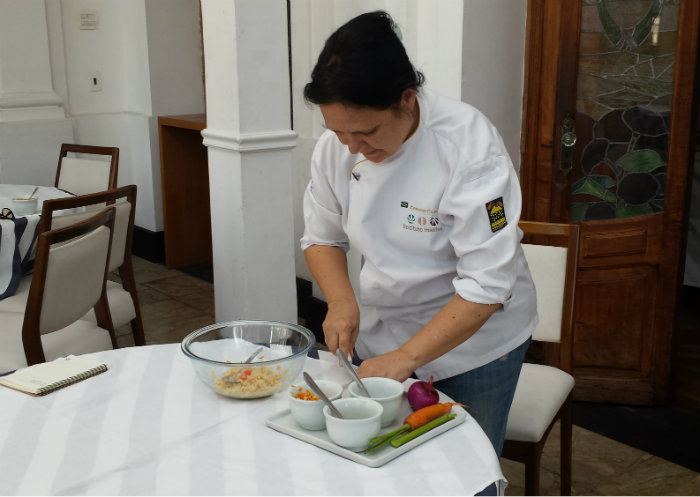Cities that host the Olympic Games talk about the legacies of the event. They’re often tangible objects, such as athletic stadiums or apartment buildings. Sometimes they’re intangible, such as civic pride. The impacts can also be negative, but that’s another story.
If there is a culinary legacy of the Rio 2016 Olympic Games, manioc – also called cassava – might be it. Hundreds of thousands of tourists are descending upon Rio during these 17 days, and it would be nearly impossible to escape the city without eating it.
Teresa Corção, chef and owner of the Rio restaurant “O Navegador,” is crazy about manioc. It’s a bush with roots used to make tapioca. In a country like Brazil, tapioca doesn’t mean the sweet, ivory-colored, globular dessert sometimes encountered in North American pre-packaged school lunches. Corção says tapioca flour is one of the most popular carbohydrates favored by Latin American cooks. Manioc is found in soup, crackers, and bread, and it’s one of the main components in Brazilian cuisine.
“It is not like some roots and starchy foods that give you high glucose and high sugar,” she says. “It’s very energetic and it takes a while to fall [in blood sugar levels].”
Manioc is also important, she says, because it’s a traditional Brazilian ingredient and her restaurant is focused on family recipes rather than the meats of typical Brazilian churrascarias. After working in the restaurant business for 20 years, Corção traveled to Portugal and learned about how the slow food movement embraced culture and food. It motivated her to travel around Brazil, where she discovered the energetic power of manioc.
After working in the restaurant for 20 years, she went to Portugal and her cuisine completely changed when she “met” the slow food movement, which means loving your culture in food. “You respect your diversity, recipes, and those who had the knowledge. So for me, slow food is about respect”. After Portugal, she travelled around Brazil and she discovered the power of manioc and how it can provide a lot of energy for everyone.
She believes that in a few years, manioc will become a fundamental ingredient in other countries. It’s also the favorite food of Olympic sprinter Usain Bolt, who says he consumes it before every race.
Paula Paiane of Mackenzie Presbyterian University in São Paulo served as Rio field producer on this story.

Chef Teresa Corção prepares manioc.

